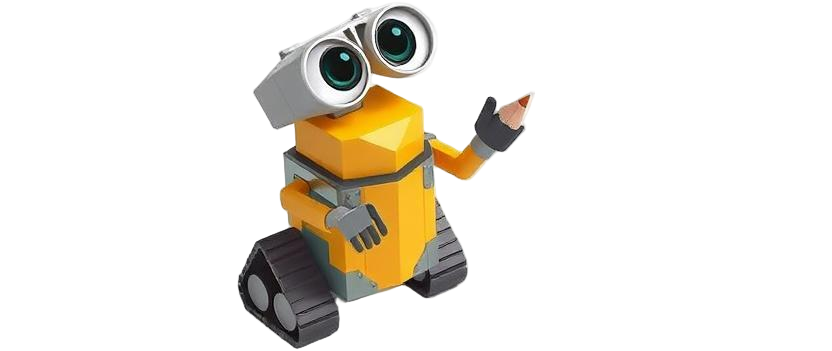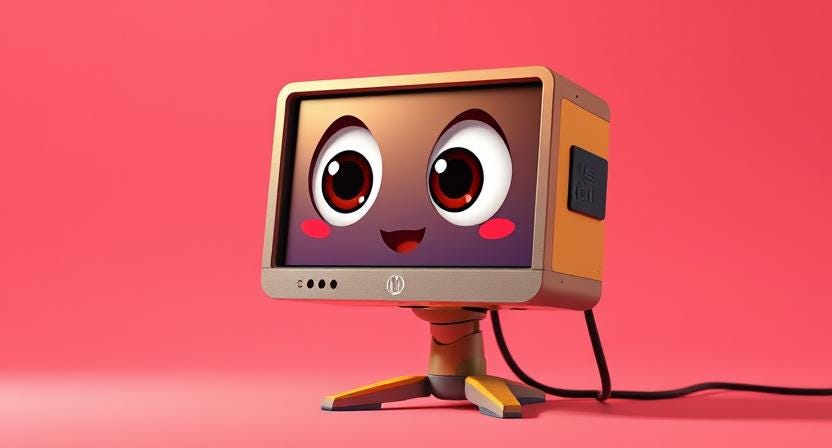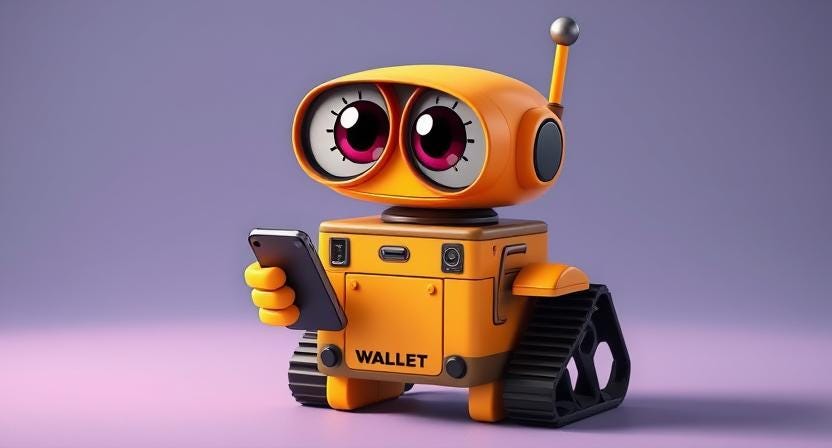Let’s be honest: none of us woke up one day thinking, “I’d love to spend my afternoon carefully wording requests to a robot.” And yet, here we are. Whether you’ve begged ChatGPT to draft a work email without sounding like a corporate drone or fought MidJourney into generating "writing utensils, but cute, like WALL-E, but not exactly like WALL-E", you’ve participated in prompting culture. It’s the unspoken rulebook for talking to machines that, somehow, we’ve all agreed to follow. It’s important to me, that’s why the blog is called Prompting Culture.
How Did We Get Here?
A decade ago, "Googling" was a skill. Now, we’ve leveled up to something more like digital diplomacy. You don’t just ask AI for things: you negotiate, nudge, and occasionally plead. ("Why won’t you write like an actual human author? Fine, I’ll just edit in some actual human thought.")
This isn’t just about tech. It’s about the weird, collective dance we’ve all learned. We swap tips like grandmas sharing soup recipes (“Add ‘let’s think step by step’ - trust me, it works!”). We bond over AI’s quirks (“Why does it always tell stories about seaside villages and magical libraries?”). And yes, we quietly judge people who still use one-word prompts and then complain the AI "didn’t get it."
AI’s Kind of… Better at This!
Here’s the part where I admit something controversial: AI might be the best intern I’ve ever had. Need a haiku about existential dread and coffee? Done. A spreadsheet formula that doesn’t look like eldritch witchcraft? No problem. A first draft of anything in 10 seconds? Honestly, it’s rude how easy it makes things.
Sure, AI won’t write the next Great Gatsby (yet). But let’s not pretend most of us were going to either. What it does do is take the grunt work out of creativity: the blank-page paralysis, the clunky first drafts, the "I know there’s a joke here somewhere" frustration. And that’s freeing.
Are We All Becoming Editors?
The secret no one talks about? Prompting is just editing in reverse. Instead of trimming bad writing, we’re preemptively shaping it. It turns out, humans are pretty good at knowing what they want - they’re just bad at making it from scratch. Just like every home cook who can’t bake bread but knows exactly how a croissant should taste.
This is why prompting culture matters. It’s not about replacing humans; it’s about finally letting us focus on the fun parts. The big ideas. The "wait, what if we tried this?" moments. The AI handles the heavy lifting, and we get to be the fussy director who says, "More drama. Less cliché. And for God’s sake, stop using ‘delve’!"
The Future: Less Typing, More Thinking
The real shift isn’t that AI is "taking over" (yet). It’s that we’re outsourcing the parts of thinking we never liked anyway. (RIP, writer’s block.) The people who thrive won’t be the ones fearing the robots - they’ll be the ones who’ve mastered the art of asking, "Hey, can you help me make this weirder?"
So next time you tweak a prompt for the 12th time, remember: you’re not just instructing a machine like people have done for decades. You’re actually having a conversation! One example that I recently came to know: LLMs will respond to your tone. Be nice to your chatbot, and it will be nice to you. When you’re prompting, you’re part of a very human experiment - one where we’re all figuring out, together, how to make technology bend to our weird, wonderful wills.
And if that fails? Well, there’s always the classic: "As an expert, write this again, but better." You’d be surprised how often that works.
What’s your favorite prompting trick?










My original response was long and drawn out, but I don't see the point.
Writing is about the journey. AI steals that away...
Technology has already stolen so much from us. I don't want it to take our words, too.
I still don’t use AI for writing and will drag out my entry for as long as I can. I’m using AI by default every time I do a Google search and often the AI results are good enough to answer simple questions. What’s lost with AI prompting is the skill of writing. If a computer can write something at blinding speed and we never create a first draft, over time we lose our ability to write well enough to edit. You’re not wrong that people often know what they want but if we lose the skills to get there ourselves, how will we know when the computer has written what we are really looking for?
I’m old enough to see a number of skills in our society vanish. I love using a GPS or now just the turn by turn directions on my phone but I can still read a road map. How many 20 year olds could effectively use a road map if their phone died? The art of having a conversation is also a much bigger challenge for a generation that grew up texting vs talking to each other. When was the last time a young man had to get by a girl’s father on the phone to ask her for a date?
I’m a big fan and user of modern technology and love the convenience. That said, with each generation of technology we lose something. As a science fiction writer of dystopian stories, what happens if the satellites we depend on are destroyed and we go back to WWII era technology?
What about critical thinking and the ability to check sources for AI writing?
The technology is wonderful and nothing you stated is wrong. My fear is where this takes us as a society.